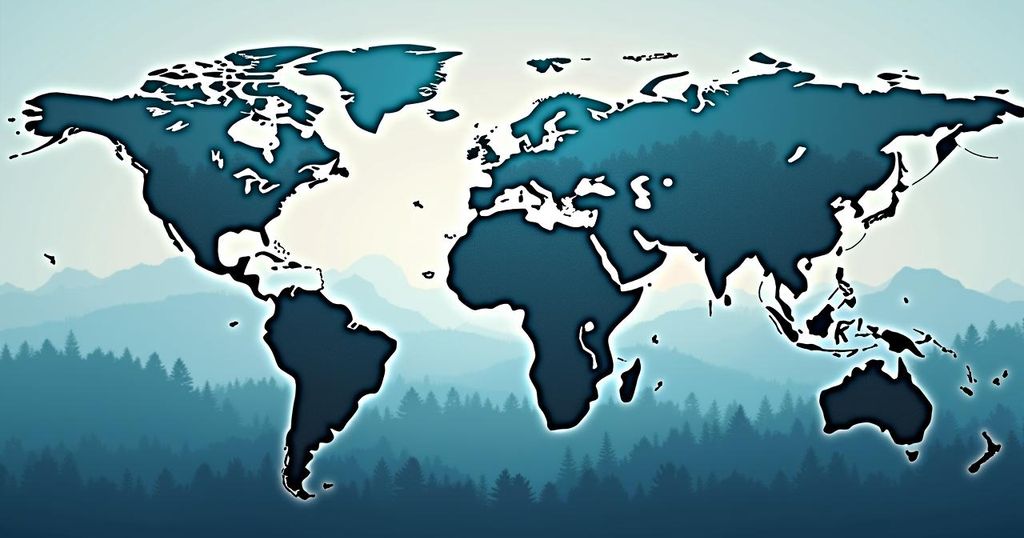China’s Over $100 Billion Overseas Investment in Cleantech: A Strategic Response to Tariffs
Since early 2023, Chinese companies have invested over $100 billion in international clean technology projects to mitigate tariffs imposed by the U.S., Canada, and the EU. This investment surge is a strategic response aimed at maintaining market dominance in sectors such as electric vehicles, lithium batteries, and solar panels, where China holds substantial shares. Leading firms are establishing overseas manufacturing to avoid trade barriers, indicating significant long-term market implications as excess domestic capacity drives a need for new export markets.
Since the commencement of 2023, Chinese enterprises have significantly invested over $100 billion in overseas clean technology initiatives. This strategic move, primarily driven by the intention to circumvent trade tariffs enforced by the United States, Canada, and the European Union, underscores China’s ambition to maintain its dominance in the global cleantech market. Chinese companies are at the forefront of various sectors of clean energy technology, including electric vehicles, lithium batteries, and solar panels, controlling substantial market shares that raise concerns regarding market competition. China leads the global market with a substantial share in key sectors, including: – Electric Vehicles: 32.5% of global exports. – Lithium Batteries: 24.1% market share. – Solar Panels: 78.1% control over the market. The dominance of Chinese firms in these sectors has prompted international scrutiny, as there are apprehensions that they may use excess capacity to saturate markets, depress prices, and undermine rival businesses. In reaction to the significant tariffs, which include a 100% tariff on electric vehicles and 50% and 25% tariffs on solar panels and lithium batteries respectively, Chinese firms like BYD and CATL have embarked on establishing manufacturing sites abroad. By doing so, they aim to sidestep these trade impediments: – BYD is investing in a $1 billion manufacturing plant in Turkey to preempt a potential steep tariff in the European Union. – CATL is broadening its reach by constructing new factories in Germany, Hungary, and several other nations. As the market conditions evolve, it is anticipated that two-thirds of China’s clean technology capacity will surpass domestic requirements by 2030, necessitating further expansion into export markets. Projections indicate a rise in solar production capacity to 860 gigawatts during this period. Amid these developments, Chinese officials have publicly condemned the tariff increases, with senior climate envoy Liu Zhenmin warning that a separation from Chinese manufacturing could elevate global energy transition costs by as much as 20%. The ongoing trade tensions reveal a complex relationship between international climate objectives and competitive market dynamics, as China seeks to expand its foothold in the cleantech sector.
China’s aggressive investment in overseas cleantech markets since 2023 is a direct response to stringent tariffs imposed by Western nations. As a leading producer of electric vehicles, lithium batteries, and solar panels, China aims to retain its competitive edge and market share in these essential technologies. The country’s dominance in these areas not only positions it strategically in the global economy but also raises questions about the sustainability of competition in the cleantech industry. Understanding the implications of these tariff responses and international investments is pivotal in comprehending the current and future landscape of global clean energy markets.
In summary, the strategic investment of over $100 billion by Chinese firms in overseas cleantech projects since 2023 illustrates a proactive approach in evading trade tariffs while reinforcing China’s leadership position in the global clean energy market. As companies like BYD and CATL extend their manufacturing capabilities beyond Chinese borders, the interplay between trade policies and climate initiatives will continue to shape the future of international cleantech efforts.
Original Source: esgnews.com




Post Comment